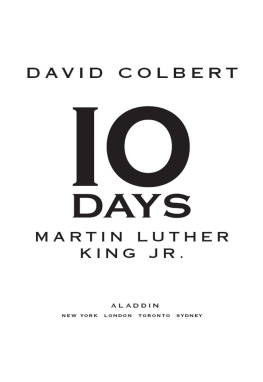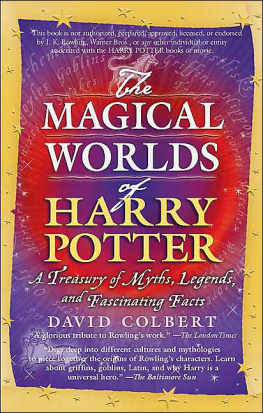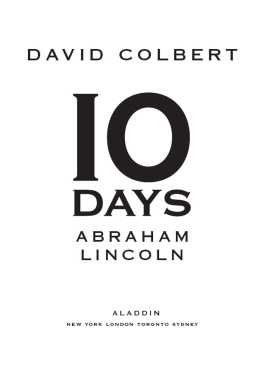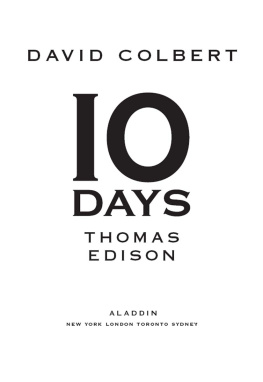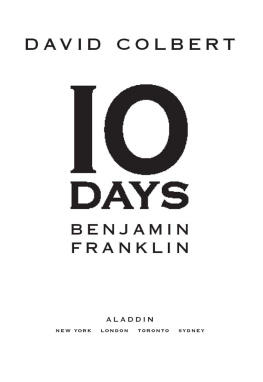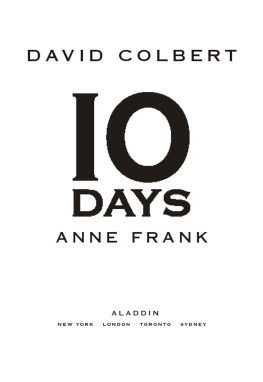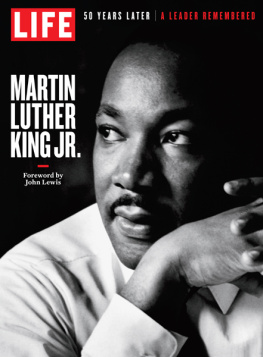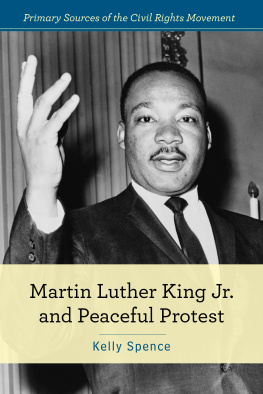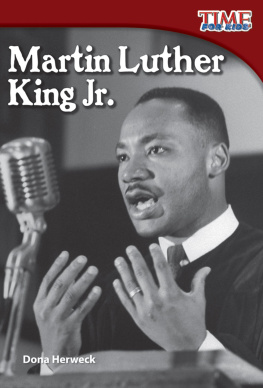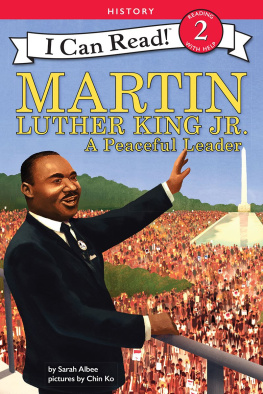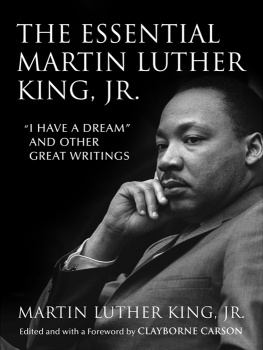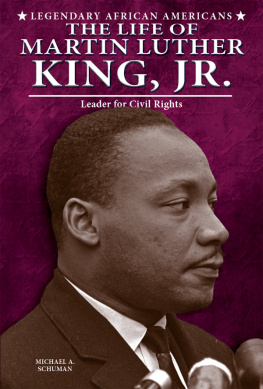David Colbert - Martin Luther King Jr.
Here you can read online David Colbert - Martin Luther King Jr. full text of the book (entire story) in english for free. Download pdf and epub, get meaning, cover and reviews about this ebook. year: 2008, publisher: Simon & Schuster;Aladdin, genre: Detective and thriller. Description of the work, (preface) as well as reviews are available. Best literature library LitArk.com created for fans of good reading and offers a wide selection of genres:
Romance novel
Science fiction
Adventure
Detective
Science
History
Home and family
Prose
Art
Politics
Computer
Non-fiction
Religion
Business
Children
Humor
Choose a favorite category and find really read worthwhile books. Enjoy immersion in the world of imagination, feel the emotions of the characters or learn something new for yourself, make an fascinating discovery.
- Book:Martin Luther King Jr.
- Author:
- Publisher:Simon & Schuster;Aladdin
- Genre:
- Year:2008
- Rating:3 / 5
- Favourites:Add to favourites
- Your mark:
- 60
- 1
- 2
- 3
- 4
- 5
Martin Luther King Jr.: summary, description and annotation
We offer to read an annotation, description, summary or preface (depends on what the author of the book "Martin Luther King Jr." wrote himself). If you haven't found the necessary information about the book — write in the comments, we will try to find it.
Youre about to be an eyewitness to the ten crucial days in Dr. Martin Luther King Jr.s life, including
- Police injustice shocks the nation awake.
- A personal sacrifice challenges prejudice and racism.
- A fearless march demands rights for all Americans.
- And an immortal speech inspires the world.
These days and five others shook Kings world - and yours.
Martin Luther King Jr. — read online for free the complete book (whole text) full work
Below is the text of the book, divided by pages. System saving the place of the last page read, allows you to conveniently read the book "Martin Luther King Jr." online for free, without having to search again every time where you left off. Put a bookmark, and you can go to the page where you finished reading at any time.
Font size:
Interval:
Bookmark:
 ALADDIN An imprint of Simon & Schuster Childrens Publishing Division 1230 Avenue of the Americas, New York, NY 10020 The photographs in this book are under copyright and are reprinted here with permission of the owners. All rights reserved. All rights reserved, including the right of reproduction in whole or in part in any form. ALADDIN and related logo are registered trademarks of Simon & Schuster, Inc. Special thanks to David Lancaster, whose name should be on this book, for his exemplary work, and to John Chew for his mathematical expertise. Library of Congress Control Number 2008936765 ISBN-13: 978-1-4169-9892-1 ISBN-10: 1-4169-9892-6
ALADDIN An imprint of Simon & Schuster Childrens Publishing Division 1230 Avenue of the Americas, New York, NY 10020 The photographs in this book are under copyright and are reprinted here with permission of the owners. All rights reserved. All rights reserved, including the right of reproduction in whole or in part in any form. ALADDIN and related logo are registered trademarks of Simon & Schuster, Inc. Special thanks to David Lancaster, whose name should be on this book, for his exemplary work, and to John Chew for his mathematical expertise. Library of Congress Control Number 2008936765 ISBN-13: 978-1-4169-9892-1 ISBN-10: 1-4169-9892-6
Visit us on the Web:
http://www.SimonandSchuster.com
T he civil rights movement succeeded because it had many brave organizers and supporters. Hundreds of men and women started local protests and initiatives that grew to national importance. Thousandsperhaps millionsrisked their lives.
And yet theres a lot of truth in the notion that Martin Luther King Jr. was special, a first among equals. He set an extraordinary challenge for himself and his movement: to achieve through peaceful victories what would have been difficult even for someone who used threats or violence. He was determined to change the minds of his opponents, not merely defeat them. Kings adherence to the ideal of nonviolence was all the more admirable because he and his supporters faced so much violence themselves, often from the very law enforcement officers who should have been offering protection. It would have been easy to strike back. King refused to do that, and urged his colleagues to be equally as disciplined.
Despite being the focus of so much adoration, no one was more aware of the work done by others than King himself. One man who knew him said King felt keenly that people who had done as much as he had or more got no such tribute. This troubled him deeply because theres no way of sharing that kind of tribute with anyone else: You cant give it away; you have to accept it. But when you dont feel youre worthy of it and youre an honest, principled man, it tortures you. And it could be said that he was tortured by the great appreciation the public showed for him.
King judged himself harshly and, despite his great achievements, was consumed by the work left to do. His murder, not long after his thirty-ninth birthday, left more work than he imagined. But the extraordinary changes in the United States that continue to take place since his deaththe changes that he dreamed ofare proof of his lasting influence. In his relatively short life, just 14,325 days, these ten days changed his world and yours.

Franklinton, Georgia.
Y ou need to get up, now, the bus driver says, looking at fifteen-year-old Martin Luther King Jr. These other folks need to sit down.
M. L. (thats what everybody calls him) stares straight ahead. Why? M. L. thinks. Why should I have to get up? But of course he knows the reason. Hes black, and white people want his seat. They expect it.
He knows what can happen to African Americans who refuse to obey the bus laws. He knows they can be forced off the bus or even arrested. He has seen blacks savagely beaten for less. He looks out the window and sees the sign at the bus stop: FRANKLINTON . Hes ninety miles away from Atlanta and home.
You need to get up, the bus driver repeats angrily. He sees only a black teenagera disobedient black teenager. In the culture of the South, thats all that matters. It doesnt matter than this young man plays the violin, enjoys opera, excels at sports, and earns top grades in high school, where he has already skipped one grade and will later skip his senior year. It doesnt matter that M. L. is a ministers son who lives in a household with rules, expectations, and discipline; or that he goes to church all day on Sunday and almost every other day of the week; or that hes often dressed as he is today, in a smart suit. It doesnt even matter that earlier today M. L. represented his school at a statewide oratory contest.
Theres no innocent explanation for the drivers demand: Hes not merely asking a polite young man to give up his seat for an older person. One of M. L.s teachers, Sarah Grace Bradley, who has accompanied M. L. to the contest, is also being told to move.
JIM CROW
U sually M. L. is treated like a prince. Hes a member of the affluent and educated elite of Atlanta, one of the most important cities in African American life. Nearly half of Atlantas 300,000 citizens are African American. The city is home to some of the nations best black collegesClark, Morehouse, Spelman, and Atlanta Universitywhich have attracted intellectuals like the prominent scholar W. E. B. Du Bois. Economically, the black community ranges from business tycoons to sharecroppers. Socially, theres no more important institution in black Atlanta than the church, and the church where M. L.s father is pastor, Ebenezer Baptist, has been at the center of the community for three generations. M. L. and his older sister and younger brother are well known within the community because of their fathers position. Theyre aware that their family has many advantages not shared by the many black citizens of Atlanta who are kept from c jobs because of racism. But neither their social status nor their affluence protects them from bigotry. M. L. has known it all his life. When he was five, the father of his best friend, a white boy, had forbidden his son to play with M. L. because M. L. was black. M. L. never forgot the shock of that first lesson in racism.
M. L. has inherited his fathers ability to captivate an audience, and it was no surprise that a few days earlier he won a spot at the oratory contest. By this time, the subject of his speech was also no surprise: He was already furious at the injustices Southern blacks faced, and the poverty that resulted from it. The title of his speech was The Negro and the Constitution. It called for the full enforcement of laws already in the U.S. Constitution that should have guaranteed equality for African Americans. It demanded access to education, jobs, and health care, all of which were kept from African Americans by local lawswhich the Constitution should have overruledthat maintained segregation.
Those laws were known casually as Jim Crow. The name came from a character in minstrel shows, a popular entertainment that made fun of African Americans, portraying them as lazy, stupid, and superstitious. White actors played Jim Crow in blackface (dark, clownish makeup). There were Jim Crow laws against eating in the same restaurants, drinking from the same water fountains, swimming in the same pools, and, of course, sitting together on buses.
T HOMAS D. R ICE (18081860) CREATED THE 1828 SONG AND DANCE ROUTINE J UMP J IM C ROW . H E WAS MIMICKING A N A FRICAN A MERICAN STREET PERFORMER.
The first Jim Crow laws were passed a few decades after the Civil War, when political compromises allowed Southern states to reestablish some of the local power they had lost when they lost the war. The laws ignored the Thirteenth, Fourteenth, and Fifteenth Amendments to the U.S. Constitution, passed after the war, guaranteeing that blacks were free, that they would receive equal protection under the law, and that they could vote.
Jim Crow laws were designed specifically to make sure blacks stayed poor, uneducated, and utterly powerless to change their circumstances. They also kept the two races physically separated in public. Hypocritically, it was common for even the most admired men in the white community to have relationships with African American women, and these were usually ignored by friends provided the man was discreet. For example, Strom Thurmond, a governor of South Carolina and then a senator from the state, who actually ran for president of the United States in 1948 on a segregationist platform, had a secret daughter who resulted from his relationship with a family maid. This was only made public after his death in the year 2003when his daughter was almost seventy-eight years old. (Thurmond lived to just less than 101 years.)
Font size:
Interval:
Bookmark:
Similar books «Martin Luther King Jr.»
Look at similar books to Martin Luther King Jr.. We have selected literature similar in name and meaning in the hope of providing readers with more options to find new, interesting, not yet read works.
Discussion, reviews of the book Martin Luther King Jr. and just readers' own opinions. Leave your comments, write what you think about the work, its meaning or the main characters. Specify what exactly you liked and what you didn't like, and why you think so.

